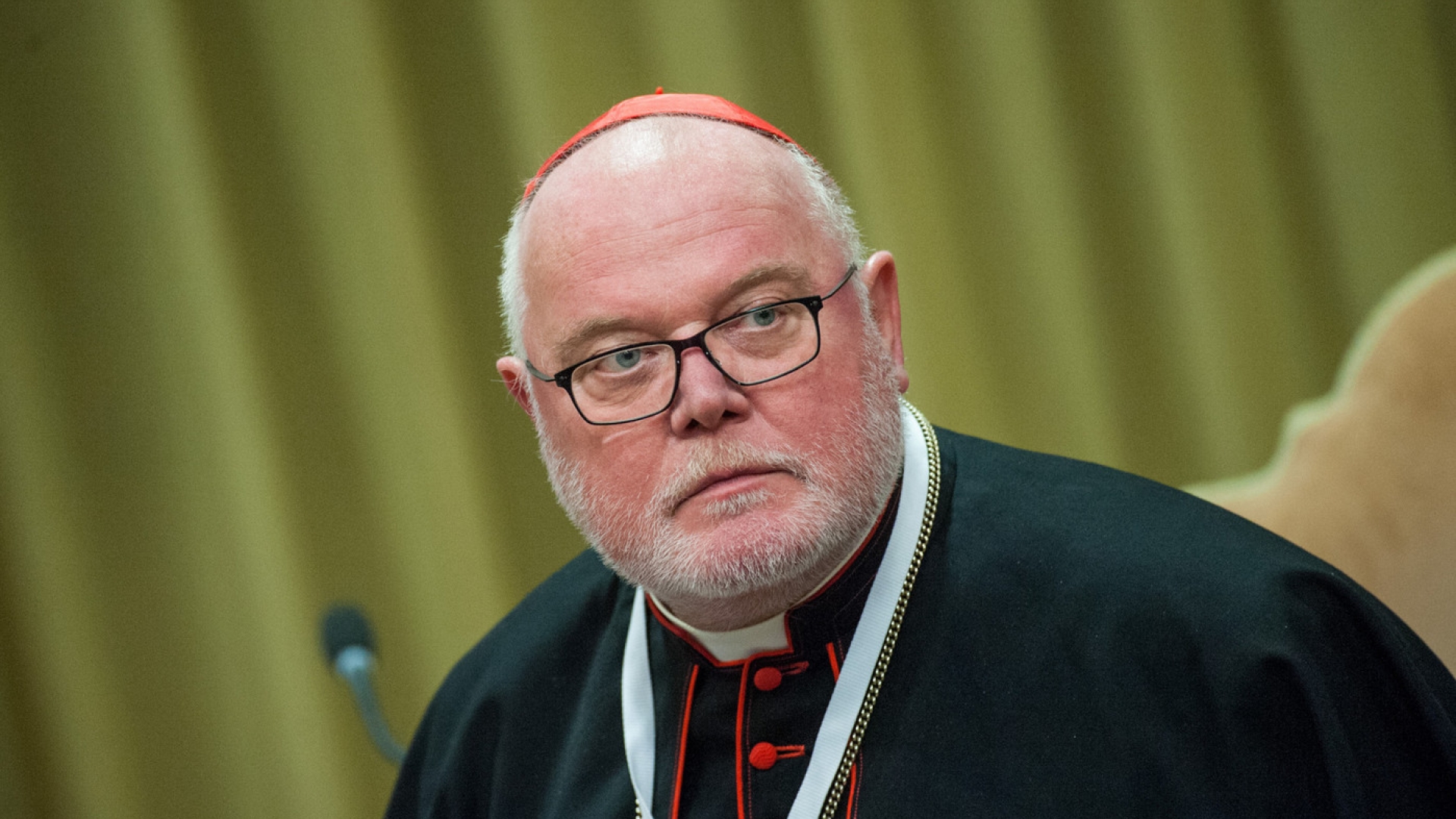Seven Bishops Request a Decision from Rome against Cardinal Marx

Cardinal Marx
Is it possible to consider allowing a Protestant to receive communion at a Mass he attends with his Catholic spouse? Card. Marx says yes.
In February, the German Bishops’ Conference presided over by Cardinal Marx answered “yes.” But German seven prelates, in their concern for the unity of the Church, have officially asked Rome to intervene.
In February of 2018, the German Bishops’ Conference approved by a qualified majority of two thirds a draft open-ended document to allow Protestants to assist and receive communion at Masses they attend with their Catholic spouses.
Several prelates immediately spoke out, as a decision this important does not fall within the authority of the episcopal Conference. They thus decided to appeal directly to the Holy See.
The German newspaper Kölner Stadt-Anzeiger revealed in its April 4, 2018 issue the names of the German bishops who sent a three-page letter to Archbishop Luis Ladaria Ferrer, prefect of the Congregation for the Doctrine of the Faith, on March 22, 2018.
The seven signatories are:
- the cardinal-archbishop of Cologne, Rainer Maria Woelki
- Ludwig Schick, archbishop of Bamberg
- Konrad Zdarsa, bishop of Augsburg
- Gregor Maria Hanke, bishop of Eichstätt
- Stefan Oster, bishop of Passau
- Rudolf Voderholzer, bishop of Ratisbonne
- Wolfgang Ipolt, bishop of Görlitz
At the end of their letter, the bishops implored the Holy See to “shed light on this document [from the Episcopal Conference, for we have] grave doubts as to whether it is consistent with the Faith and unity of the Church.”
This appeal to the Vatican – a fact worth noting – was made unbeknown to the president of the German Bishops’ Conference, Cardinal Reinhard Marx, who is also archbishop of Munich and Freising. In an official statement published on April 4, 2018, the very liberal prelate expressed his “surprise”, not to say irritation at the initiative of his seven fellow bishops. He defended himself, recalling the quality of the debates at the General Assembly and the overwhelming majority that voted in favor of “intercommunion” in mixed marriages. He claimed that a national episcopal conference does have the authority to allow the distribution of the sacraments of the Church to those who are not in full communion, based on Canon 844 that allows this distribution “if the danger of death is present or if…some other grave necessity urges it.” He ended his statements by invoking the encouragements from Pope Francis to continue forward along the path of ecumenism with other Christians, and to do so by implementing pastoral measures.
Those who signed the appeal to the Vatican wish to believe that they will be heard. In July of 1999, Cardinal Woelki’s predecessor, Cardinal Joachim Meisner, asked John Paul II to intervene in the affair of the Donum vitae centers run by the Church in Germany. These centers were delivering, with the bishops’ blessing, certificates granting access to abortion. Cardinal Meisner’s appeal resulted in a papal instruction condemning this practice.
It is to be hoped that in 2018, the Congregation for the Doctrine of the Faith will in turn lend an ear to the seven prelates and reaffirm the primacy of the Faith over the ambiguities being spread and upheld in the Church a capite usque ad calcem.
Sources: Vatican Insider / Kölner Stadt-Anzeiger / dbk.de / FSSPX.News – 4/5/2018





